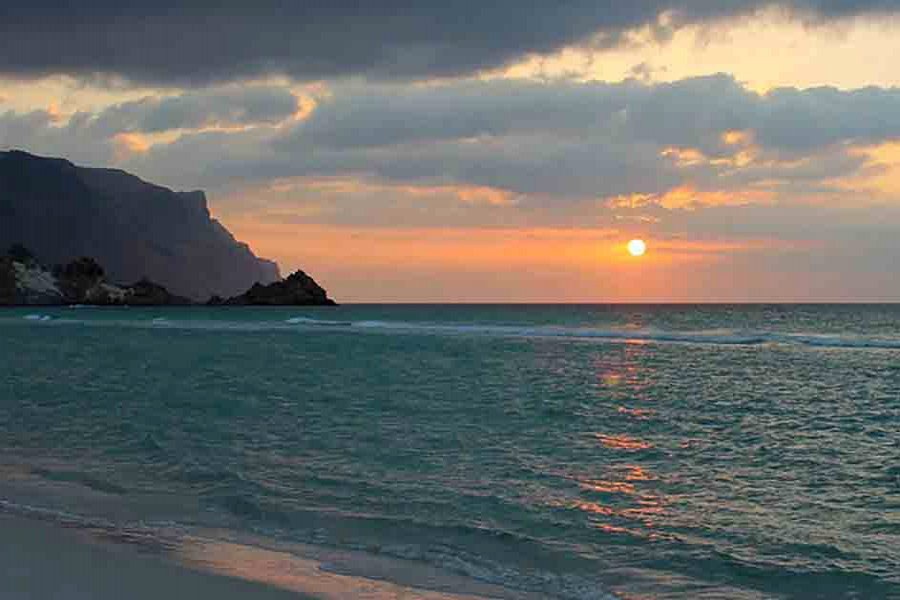
Published :
Updated :

Following the settlement of maritime disputes with Myanmar in December 2013 and that with India in July 2014, the government did flaunt it as an accomplishment-albeit a political one, with a sense of indulgence than was sensibly expected. Already quite a few years have passed, and there is hardly anything in view to suggest any concrete work programme to explore the vast resources of the ocean-blue economy as it is fondly dubbed - is in place. Clearly, what the international court's verdict implied was a horizon waiting to be explored and exploited with well-planned policies and actions. There were talks in informed quarters suggesting that the government get started with 'unlocking the blue economy potentials'.
Unfortunately, this has not happened. Up until now, there has not been any mentionable move forward except for a small 'cell' set up under the Energy Division of the government. The cell -- Blue Economy Cell (BEC) -- was set up on a temporary basis under the Energy Division, according to reports. The BEC remains a small organ headed by a director general with only a few officials and employees appointed on temporary basis.
Terming it a frustrating situation, energy experts have said that this is because of the government's lack of interest in exploration of resources including oil, gas and fisheries in the bay. They stressed the need for multi-client seismic survey in offshore areas. Without acquiring seismic data, according to them, it is impossible to make any assessment of our share of the resources in the Bay of Bengal.
It may be recalled that Bangladesh got 19,467 square kilometres out of the 25,602 sq km disputed area from Indian-claimed area in the Bay of Bengal. In addition, the country sustained a claim to 200 nautical miles for exclusive economic zone and territorial rights in the Bay against Myanmar's claim. But things have not moved noticeably farther in terms of preparations. And needless to emphasise, the subject demanding high level of expertise should have been left to experts to suggest how to go about it. The government reportedly formed a 25-member 'Coordination Committee on Sea Resources Exploration and Fair Management' headed by Principal Secretary to the Prime Minister's Office around four years ago for taking up strategic planning in this regard. The committee, comprising top government officials and representatives from relevant organisations, was supposed to sit every three months, but it is not known whether it framed any framework for strategies. On the other hand, the BEC too could not make any worthwhile move due mainly to manpower constraints.
Of late, there are talks of setting up a blue economy authority to deal with the massive development activities required in this regard in a planned way. Experts opine that moving ahead methodically and meaningfully could generate businesses worth $40 billion in the coming days from untapped sea resources. Globally, according to experts, blue economy has resources worth $24 trillion, but so far only around $3.0 trillion worth of resources has been utilised.
Ocean economy is an integral part of today's development paradigm, emphasising greener and more sustainable and inclusive economic development paths consistent with the 2030 Agenda for Sustainable Development and the Sustainable Development Goals (SDGs), especially Goal 14 (conservation and sustainable use of oceans, seas and marine resources for sustainable development).
The need of a well-empowered authority for methodical exploration of the sea resources need not be over emphasised. Experts strongly support the idea because besides putting in place a general framework of activities including implementation and monitoring, a high-level body such as the blue economy authority is the appropriate agency to specifically outline proper business modules for investors in a planned way. Many sectors of the economy can immensely benefit from the marine resources. These include -- fisheries, mineral resources, pharmaceuticals, transportation, energy, foods, health and tourism etc. According to experts, the country's expanded sea area is almost 81 per cent of the entire mainland. The country has a total of 660 km-long sea boundary, but the fishing vessels cannot catch fish beyond 70 km. It means we've no access in almost 600 km. That's why fishing vessels from India and Myanmar often come to catch fishes from our territory. Not only that, our fishing net cannot go below 200 feet of water, whereas the high-valued fishes like Tuna and Swordfish are available in the deep water.
In this connection, it may not be out of place to mention that the UNCTAD has lately come up with some proactive moves to facilitate countries in need of financial and technical resources to seek assistance under what is called OETS (ocean economy and trade strategy) project. The OETS project aims to support developing countries in realising economic benefits from the sustainable use of marine resources. It will assist coastal and developing countries in promoting sustainable trade of products and services in ocean-based economic sectors by analysing, elaborating and adopting evidence-based and policy-coherent ocean economy and trade strategies and contribute to building national capacities to implement them. Some countries have already expressed interest to be part of the project. Bangladesh may also like to examine the scope and likely benefits of the UNCTAD project.
wasiahmed.bd@gmail.com


 For all latest news, follow The Financial Express Google News channel.
For all latest news, follow The Financial Express Google News channel.